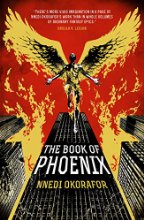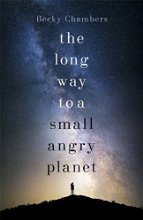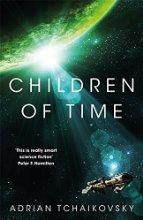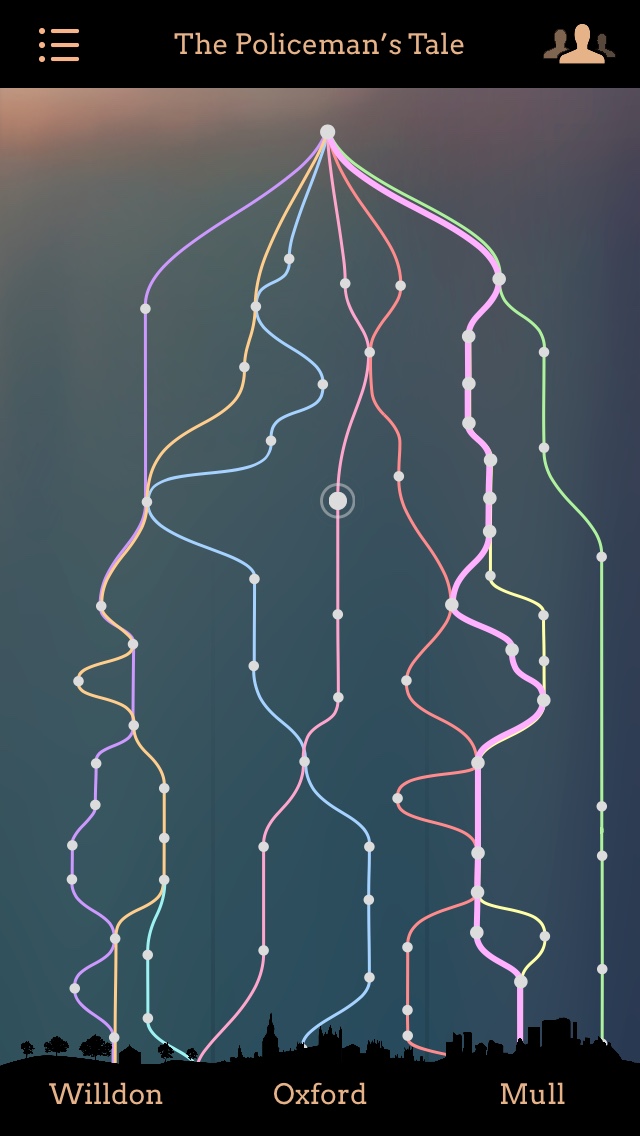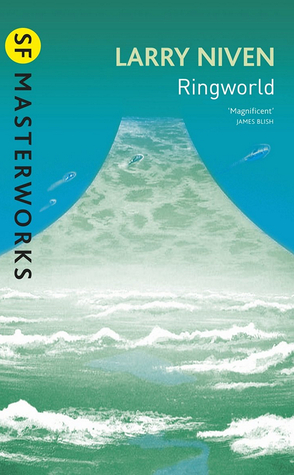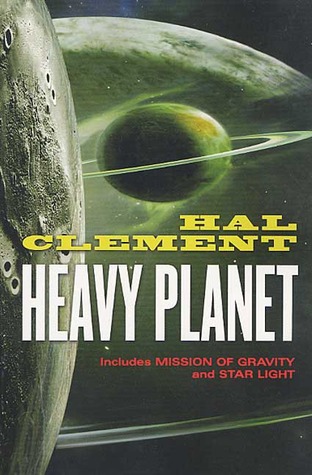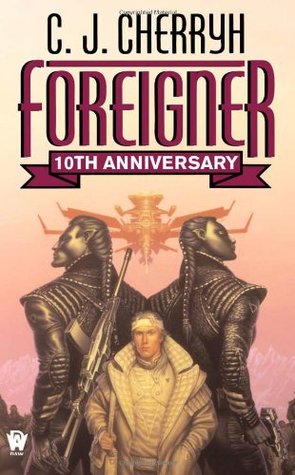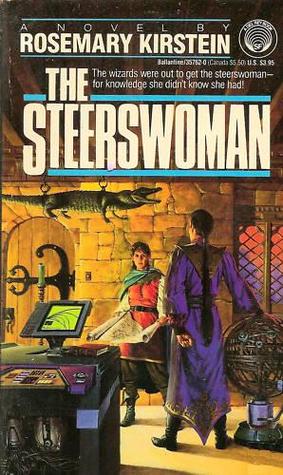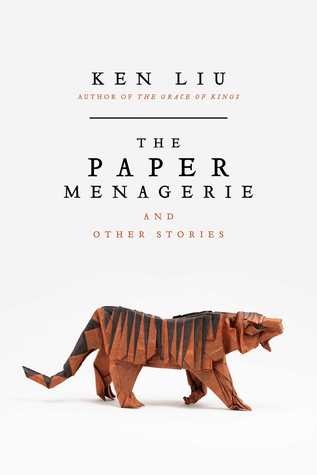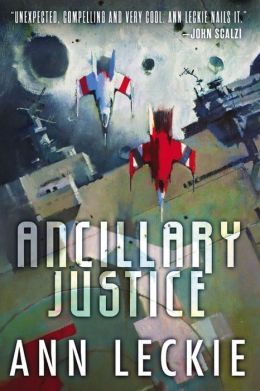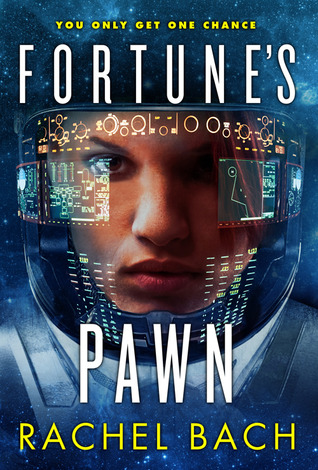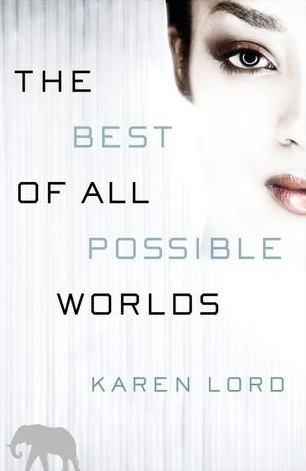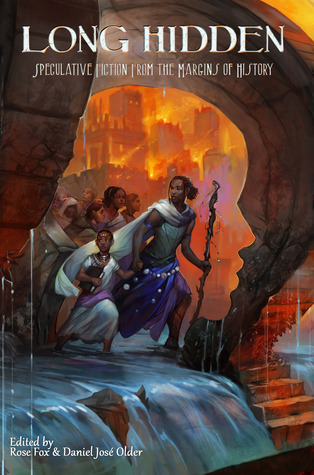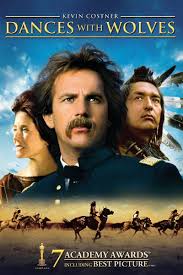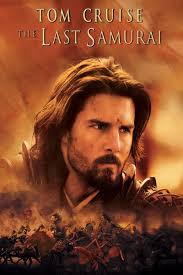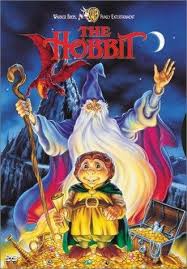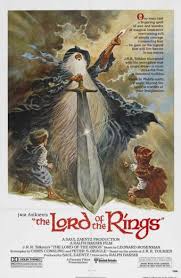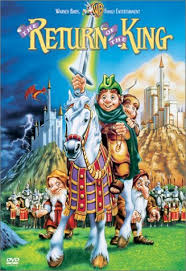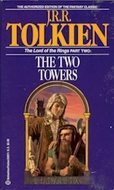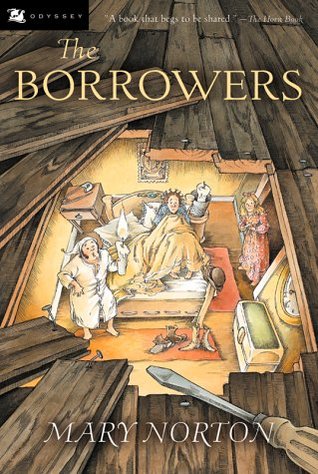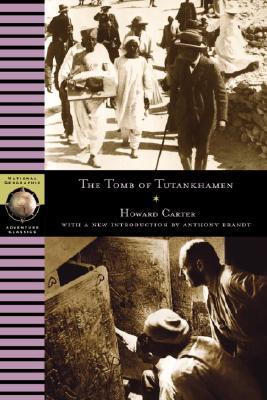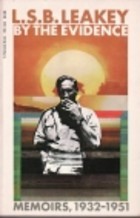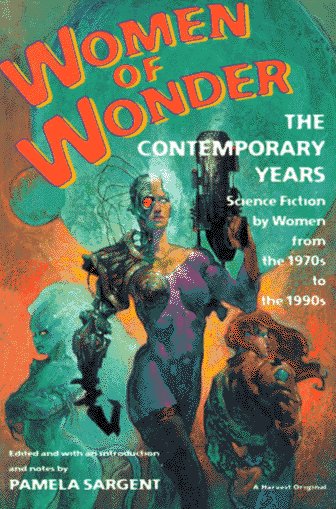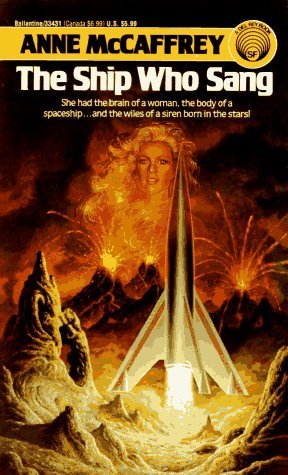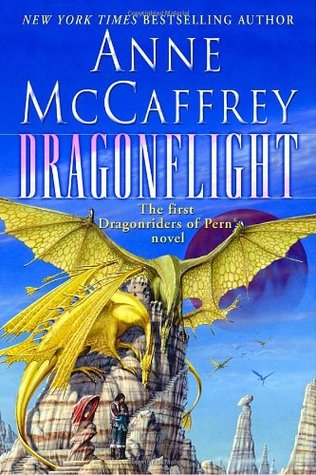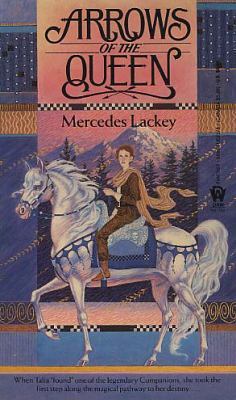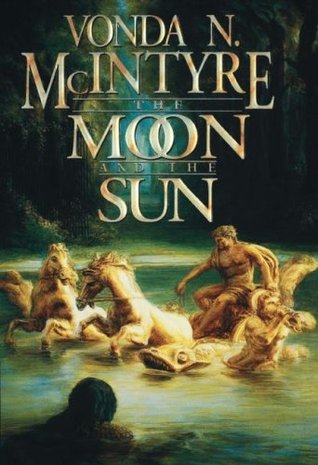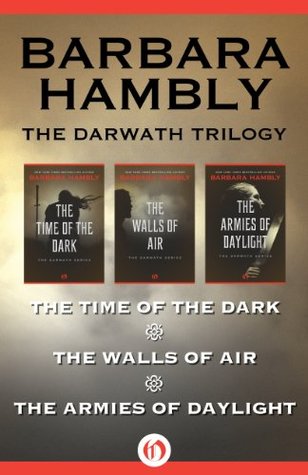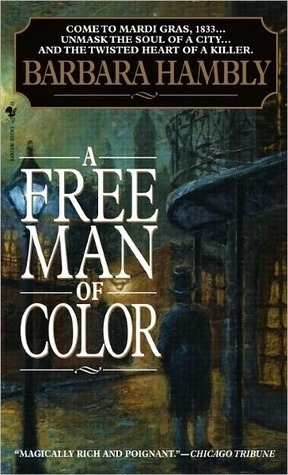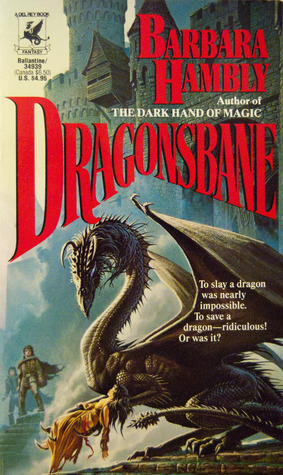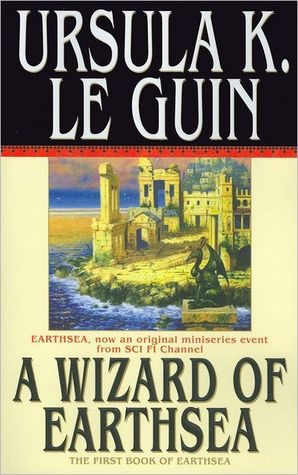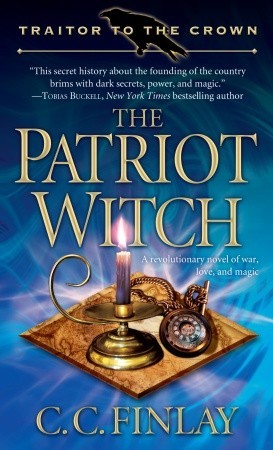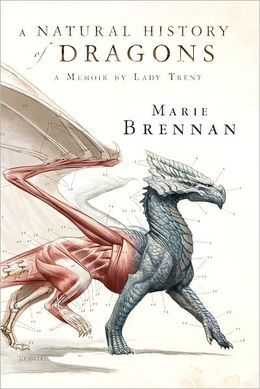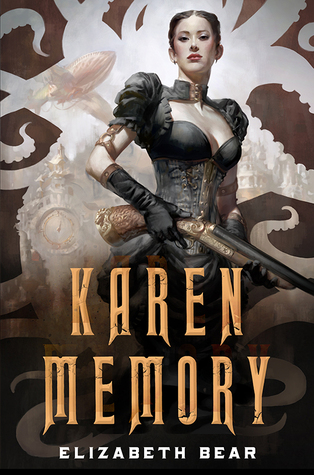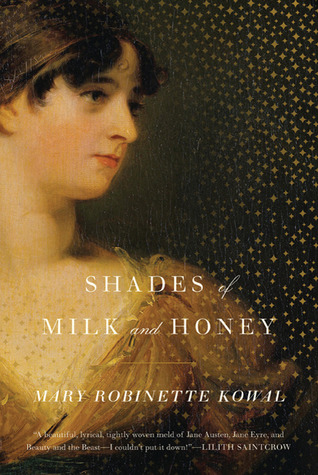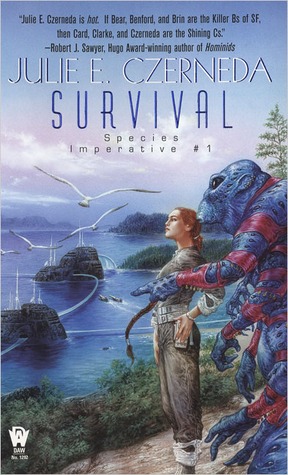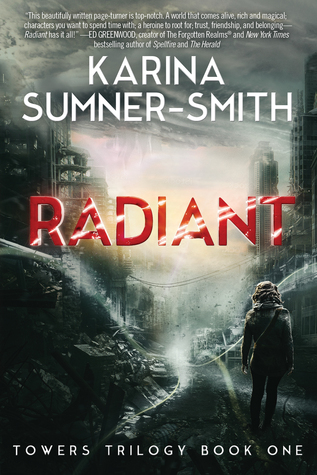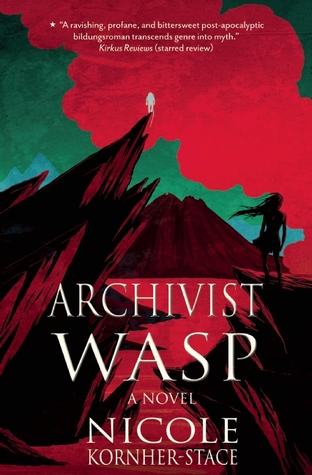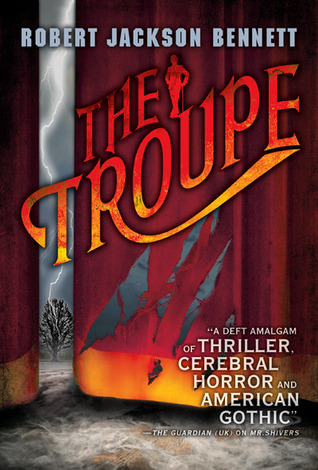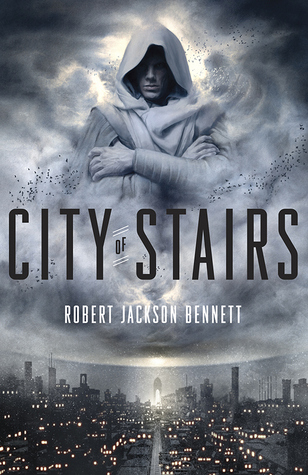This episode, Kate Elliott (@KateElliottSFF) joins me and @afishtrap to discuss women in Grace of Kings. The (lack of) women in the story is highly noticeable early on, while the great warrior Gin Mazoti & other women come to prominence late in the novel. We talked about the roles of women, loving a story while seeing its flaws, specific characters (particularly Kikomi and Mira), and how women are often presented in Epic Fantasy.
Other episodes in this series can be found here.
Kate's review of Grace of Kings at A Dribble of Ink
Booksmugglers' review of Grace of Kings (quoted in episode)
Kate's essay at tordotcom about the historical roles of women.
Outtake here - a clip that didn't quite make the cut discussing the historical roles of women.
The amazing art which inspired me to actually get this project off the ground was created by @etrandem
Send feedback! Tweet me! Tweet the show! Be a guest on the show!
Music - Jazzy Ashes by The Underscore Orkestra
If you want to subscribe to the show, the RSS feed is: http://www.cabbagesandkings.audio/?format=rss
Transcript
(AF - @afishtrap, KE - Kate Elliott, JSM - Me!)
KE - I just think this whole thing of where we're trying to list the women & what their relationships are is an interesting part of how women are often used in Epic Fantasy, female characters, I mean
*Intro Music*
JSM - Welcome to Cabbages & Kings, I'm your host, Jonah Sutton-Morse. With this episode, Kate Elliott joins Afishtrap & me to discuss the women of Grace of Kings. Those of you who’ve read it probably remember that despite the large cast, there are few women early on, and they are generally defined by their relationships with men. Later, more women appear - I remember being on Twitter as people read Grace of Kings, and the frequent chorus from those of us who’d finished the book to those who were wavering partway through: wait for Gin, wait for Gin!
In this episode, you’re going to hear us talking about a book we love, an aspect of the book we didn't always love, and various ways we responded to different women in Grace of Kings. The conversation is rooted in the book, but it is also a snapshot of the many ways that readers navigate their relationships with problematic faves and the presence or absence of women in epic fantasy.
I'm going to start with Kate Elliott, just after we had refreshed our memory & cataloged the women of Grace of Kings.
KE - I need to start what I’m about to say because it’s going to sound critical. First of all, I loved this book. I loved this book, and I can't wait to read the second one, I think it is an incredible piece of work, brilliantly written, brilliantly conceived, and I adored it, and I actually hit a point about a third of the way in, and I had no idea what to expect. And about a third of the way in, I got in and I said to myself "there's like two women in this book"
AF - *laughs*
KE - A third of the way in there are only two women in this book, and two things I talk about later had kind of irritated me, and I sat there for a minute and I said “normally, normally when I read an epic fantasy and I'm a third of the way in and there's only two women and they're minor characters, and one of them's whole story seems to revolve around sex, and beauty, I'm done, the book's over.” And I sat & I thought, but I love this book so much that there could never be any more women in this book & I would still love it, because I can love things just because I enjoy them, they don't have to fit whatever my thing is, so I'm just going to love this like I've loved so many things across my life that had almost no women in them.
AF - Yeah
KE - I loved the first Star Wars film and it has Carrie Fisher who's phenomenal and she's like the only woman, right?
AF - She is the only one
KE - Well, the aunt is there briefly
y'know
AF - Oh, that's right
KE - And in the second one I think there's the senator who speaks a line, maybe she's in the third one
But having said that, what's interesting to me about this list we're making, is that we are identifying all these women according to how they fit the men's stories, whereas the men we identify them by their stories.
AF - Well, the counterpart to that is I got a third of the way through this story and hit a certain chapter and said to myself this story has so much of what I have always wanted to read, but couldn't because most of the stories have this sort of feeling, haven't been translated into english
So I either have to wait for somebody to post it so that I can read it, very slowly, or for it to be made into a television show. The Chu-Han contention just is not something that you see in western media a lot, and and so I was so loving getting to be able to read somebody who's in dialog with that history that what would've usually had been a completely Do Not Finish point for me I was just like y'know what we're just going to skip this chapter, this chapter just doesn't exist, because otherwise it would've been a DNF, but the rest of the story, yes! I mean I wouldn't have talked for so many hours with Jonah if this were not a story that entranced me in a hundred other ways
*Interstitial Music*
KE - Have both of you seen Red Cliffs, the film?
JSM - No
AF - Yes
KE -I love that film. I love it. And so, in a way, I'm totally agreeing with what you're saying, this book is in dialog with that tradition, and that tradition has this element in it. And so what was interesting to me is that Ken, then, at the end, and we'll talk about this more at length, but at the end because he's set up this tradition in which women are very minor characters & they have very set piece roles that are always in relationship to the men, and then suddenly at the end he kind of blows that up, and it wouldn't have ... this is the irony is that it wouldn't have worked as well if he hadn't adhered to that expectation and that tradition through so much of the book.
AF - Yeah but at the same time, it's if he had not been telling the story with which I was already really familiar, I don't think I would've ... if it had been say for instance a retelling of The Odyssey, or one of the Greek Myths, I think I probably would've made it a third of the way through the book & said I've foudn the cure for insomnia. It was the dialog with the history that I already knew that got me through the parts where normally I would be like, I don't ... life is too short to put up with having women shoved to the background.
That requires a great deal of trust in the text, to be able to say I will wait it out and see if you're going to turn this around, because 99 times out of a hundred the books never turn it around and the text never even seems to realize that it needs to be turned around, it speaks to the text's ability to ah to have that authoritative storytelling voice that I kept reading
KE - There's a ... this is so fascinating, what you're saying is so fascinating to me first of all, that element of trust is *really* important to point that out, I think you're absolutely right about that. And a third of the way in, I trusted the story, to be a story that would have things in it that would interest me whether or not women were included.
Because again I'm old enough that I'm so used to loving stories that have no women in them.
I mean I love Lord of the Rings, how many women are there in LotR, right?
AF - uhhh *laughs*
KE - The expectations have gotten ... I'm now less patient, I mean I think as all three of us are now, about stories that don't include women now, but sometimes I'll read something and I'll say, y'know.
So I trusted him. I also know people who did read the first third & say I'm done with this. I know people who stopped reading because of that issue.
But I wanted to go back to something else you said - you said you felt you were able to continue because you were familiar with the tradition
AF - Yeah
KE - And I was able, if this had been a story set in a medieval Europe, I would've stopped at that point. But because I knew enough of this tradition from watching films and reading y'know some of Dream of, I've read like 3/5ths of Dream of Red Mansions, I've read a little bit of Three Kingdoms. I've read enough of it, it was the fact that it was something new for me, the landscape was new for me, and I could kind of accept that, that was why I kept reading because there was new stuff in it, but if it had been the medieval stuff I would've been out.
*Interstitial Music*
JSM - So we’ve talked about the strength of the narrative voice, and the other appeals of the book that made us fall in love even as the opening was so empty of women. Now we’re going to turn to Kikomi, the beautiful queen who aspires to lead her people & is advised by the goddess to do so with her sex appeal.
*Interstitial Music*
AF - Sometimes I would rather not be on the the page at all than see myself on the page done wrong. And I did get to that point with Grace of Kings where I was thinking y'know what, if you can't do women right, just don't try, just stop. And that's, that's a wierd kind of position to be in as a reader where you would rather take erasure over yet another "oh look, she's using her sex and beauty in order to get ahead, who thinks this is good", I'm just like no just don't.
And I think that was the one point of irritation because it felt like, it felt like it was pandering to that sort of expectation that if a woman was going to show up and get any sort of airtime at all then that was one of the four things she had to fit into.
KE - You're talking about Kikomi, right?
AF - mmhmm
JSM - Yeah
KE - You know what? If you want to know the two things that irritated ... I had very mixed feelings about Kikomi, because I had very much similar to your feeling, it was like why, why is this what we're getting and then because I loved the book so much, if I love a book a lot of course don't we all do this, that we make excuses and find ... it's not excuses, we say "well, hey, we can make it", like if my friend says this offensive thing then I'll find a way to say it wasn't so bad but if someone I don't like says it than I'm like ohmygosh I gotta like y'know drop a piano on them, right?
So we all do, I don't know maybe you guys are not like this.
JSM - Oh no, yes.
KE - This is why I don't read, like if I meet someone and I really don't like them I will never read a book by them because I can't give them a fair shake, and I know that about myself as a reader, so I just accept that that's how it is, I'm judgemental and subjective. But, but
So I got to Kikomi, but then he did that thing, then I thought y'know what I think he's trying to show that this limited sphere she has, right, you can hear my brain ticking the rationalization, the limited sphere she has she's trying to make the statement that the young prince does when he immolates himself, and at the same time she's trying to protect her country and this is the only way she knows how to do it.
*Interstitial Music*
AF -There is one thing I'd like to explain what in particular actually, because Kikomi is very textbook, we've read her in a thousand other books, there was a maneuver that the text does that was the specific part that made me want to just start throwing things.
It's when she first meets the goddess. She's been introduced as somebody who's like, I can do this, I can take care of things, I can be more than everybody expects me to even if they're disappointed that I'm not a boy. And so you've got this emphasis that she's willing to go beyond that, and I'm like, OK this is pretty standard. But it's the maneuver when the goddess meets her, that feels kind of like, one big fucking lampshade where the author says "hey by the way, I'm going to maneuver this character into the same end result that you would've had anyway, but I'm going to try to be slick about it" and that is what actually pissed me off the most. It was not that you have a stereotypical character who could've been stereotypical, coming to a stereotypical end, it's this little interlude with the goddess where you have the character saying to the goddess: "I want to do more, I want to be, I want to lead these people right" and the goddess is saying "oh, no no no, you know what would be really, really good, is if you used your sex appeal, and then the character goes "oh my goodness, you're so right"
I'm like, “what the hell, what the hell am I reading here?” And that in particular felt like - the text felt like it was well aware that it was contorting things to reach a specific end, but it treated me like an idiot in the course of doing it, and so that was actually the part, not the rest of Kikomi, but that particular discussion that made me feel like, oh just be honest, just say that you wanted her as a plot device to die.
KE - Is that, because the Kikomi incident comes very soon after the prince who immolates himself, am I correct about that? Because I felt like it was an echo of that - these are people trying to salvage what they can of their kingdoms or their places they rule & are responsible for
JSM - mm hmm
KE - And so I felt like it was almost written as part of that same discussion about what must a responsible ruler do, what is their duty, and in both those cases, the end result is that they must die in order to protect their people.
JSM - Right
KE - But then the choices that are made, how they each get to go, are
AF - Yeah, are so based on their sex organs instead of, I mean, really what I got to at about the halfway point of the book, I just flipped the genders: in my head, Kikomi became male & the young prince who immolates himself became female, that was all I needed
I just wanted to see something other than “girls uses her sex”
JSM - And in fact the goddess' speech is very explicitly that - she says "these are the labels men have put on women. You speak as though you despise them, but you're parroting the judgements of historians. Think of the hero who played with the hearts of Rapa and Kama, who showed his naked body to the gathered princes & princesses of Crescent Island, claiming himself to take equal delight in men & women. Do you think historians call him a seducer, a harlot, a mere bauble?"
And, I feel like there's - that is the attempt to say y'know, if you gender flip what is happening with Kikomi it doesn't read as the stereotype that it is. But I ... I think it just didn't, it didn't make that jump.
*Interstitial Music*
AF - it's one of the things that Jonah & I have talked about before, of, his sense and the idea that certain plot elements are happening in order to maneuver us and manipulate us towards Kuni is awesome & no matter what he does the plot is going to prove that out.
JSM - Well, yeah, so I justified my, doing the "well I love this book so this problematic element I'm going to kind of make excuses for" as just seeing this as yet another set piece, another origin story because there were so many of those scattered throughout the book. And I felt like so many of those origin stories lean into cliche. And lean into trope. And I said OK, we are leaning into a trope,
AF - Just roll with it
JSM - and I'd rather not see it, and I wish something else, but y'know that's a piece of ... going back to the notion that one of the things that is really neat about GoK is there it is unfamiliar & it is doing things that you don't see in a lot of other epic fantasy, one of the things that I really jumped on as something that I liked was the structural sort of "okay we're just going to take a minute & tell you an episode"
KE - I loved that
JSM - that's very cliched & tells you how the hero became who they are. And I loved that & so when I read this Kikomi bit, especially because he spent so much time setting up the beautiful, perfect, idyllic city that she ruled over, I just thought all right, that's the piece of this that I'm going to be reading, is how is this particular tale told, not the fact that this particular tale could probably do without being told at all
AF - I'm pretty sure that on the list of Jonah's 10 things he remembers about this book, that city is number 1, 2, and 3.
*laughter*
JSM - No, the Narwhals riding up the castle is number 1, the city is in my top 5 of the things that I remember.
AF - That visual. Yeah. But it is also one of the few places in the book where he really, where the text does layer on the visual.
*Interstitial Music*
JSM - Is there more to say about Kikomi?
KE - I have one more thing I can say about here - so I do think that y'know we meet, first we meet Jia and Jia is clearly so much smarter than any other man in the book, right? And she's always got, she's like such a classic character who is the woman who has devoted her life - I saw this in graduate school in the academic world all the time. The woman who has devoted her life to her husband's career.
AF - ah-huh, I saw it growing up in the military
KE - Yeah, and she is that character, and so on the one hand I was like why couldn't the book have been about her, but OK, that's what this book is, right, so I'll go with that. But with Kikomi I was like, that was really for me, because those two are really the only women in the first 2/3rds. So with Kikomi it was like okay now we really get hammered now with the sexism and the patriarchy of the society. And, what for me happens with that is that then when he does bring in, start bringing in more women.
When the women do enter the story you set up so much expectations and especially with Gin that um that great scene, where she crosses the river and there's that great scene where that dude is going oh no we can't fight them because we can't cross the river because that would be bad, that goes against tradition and furthermore she's a woman what could she do anyway.
The text doesn't have to say anything more, it doesn't have to explain anything because we have seen this for 2/3rds of the book. We totally get that this would happen, I don't have any trouble believing that she can win victory after victory because these idiots see her as a woman and then can't do anything.
*Interstitial Music*
JSM - I think this point about how Kikomi & Jia’s stories reinforce the patriarchal society in Grace of Kings is really important, and I’m going to take a minute here to quote from a review by Ana of the Booksmugglers that really hammered home for me why the absence of women in so much of Grace of Kings is a problem for so many readers. After acknowledging that the text challenges and questions the misogyny of the society even in the early pages, Ana wrote:
“I cannot begin to tell you how much I resent – and a lot, it appears – this. The lives of women are not a “long game”, sorry. I don’t want to be “incremental woman”, you know, one who appears only when it’s convenient after a point has been made, regardless of the obviously good intentions behind this choice.”
We’re going to turn away from Kikomi now to some of the women who did appear later in the story, and two stories in particular that reflect each other quite nicely & also show the breadth of the stories brought into Grace of Kings as the novel unfolds.
*Interstitial Music*
KE - I liked Mira because she didn't have any ambitions. She leads a life that is very similar to what many women in many societies lead across the entirety of their lives, and these are lives that are so ignored and treated so much as if they don't matter, these, they're just like treated as disposable in narrative, y'know the invisible people who we just kind of throw away,
AF - The background expendables,
KE - the background, but her journey of her grief and her trying to understand what it means & her hatred and how she turns it to tidying up after this man and then the whole thing that happens with her & Mata, I found it so interesting that he chose, that that story was told at all and I think it's important because I think that those stories are almost the ones that get left out more than any other stories of the narratives that we value and that we trumpet.
AF - And you know actually the part I liked with Mira was that Soto, Lady Soto seemed to be the bookend, that you have Mira for whom everything seems to be on the surface, in other words the narrative tells you right up this is what's going on, this is her background, this is what she's working through, and then you have the completely opaque one who is kind of performing the same sort of background, expendable but in a different household, so these two acted as different facets of that same person in the background who normally would just be ignored and I did like that part. I did think that was in some ways the more Mira got highlighted in terms of how she felt the more intriguing I found Soto for not getting any of that attention, yet still being in the narrative. Still very much playing a role.
KE - Yeah, I do think that they form bookends, and for me I always felt that there are all these hidden depths in lady Soto that we're gonna not find out until book 2 that she knows a lot & that she's hiding a lot and that she has her own, her own plots and plans and schemes and long-term motives whether, whereas Mira's just like trying to make sense of this, of how her life was destroyed by all this war.
Y'know, she's a refugee, which is why I loved the thing where she just starts tidying up, she's putting her life has been torn apart, she's been completely torn out of all of the things that she had to where she was rooted to herself and now she's just tidying up, and I thought that was just symbolically, and because she is a very surface character - you really know who and what she is and what her conflicts are, and there isn't a lot of depth in there, and I don't mean that in a negative way I mean that's just who she is. and I liked that contrast between the two women, and how their what they're doing in each of those different households, because they're performing similar but kind of different functions.
AF - Well it's also, the interesting thing is Mira seems to be there to learn, about herself and about what's going on and about what she wants to do whereas lady Soto is there to teach.
KE - mmmm that's interesting.
AF - Both of them are assessing the person they think is an opponent. Mira assumes that Mata is her opponent on some level, and Lady Soto walks through the door quite aware that Kuni in some ways is a potential opponent and yet both of them end up making their peace and their resolution is Mira is very much I'll learn what comes next, and Soto's like all right, you've got the potential, sit down kid I'm going to teach you a few things because you're going to need to know this, and Jia's response is allright, it's a nice architectural move in terms of the structure of the story.
KE - yeah
*Interstitial Music*
JSM - One of the reasons we invited Kate Elliott to help with this discussion (beyond the obvious delight afistrap & I both took in being able to talk to one of our favorite authors & her general thoughtful reading) was that Kate posted a review of Grace of Kings that specifically engaged with the absence of women in the story. She had a few other critiques as well, and Kate and afishtrap had a discussion of the distant islands that Kuni approaches with his men. Earlier, we brought up the way that stories like Kikomi’s and Jia’s reinforced the patriarchy that limited the society in Grace of Kings, which heightened the prominence of women later in the story. What follows is more along the lines of a missed opportunity - a discussion of alternative historical precedents that could have been contrasted with the overwhelming patriarchy of the empire, a what-might-have-been. For those of you who want to dive deeper into historical precedents, I’m going to link to another essay Kate wrote, and post an excerpt that didn’t quite fit into this episode onto soundcloud. Those’ll all be findable in the show notes.
*Interstitial Music*
KE - Actually the two things that bugged me most were right at the beginning in the procession where like the second thing you see is the fucking dancing girls
AF - *much laughter*
JSM - Ah Ha
KE - The first thing, I'm like oh my god, no, no, why do they have, that's so western to me, it's not even western, they wouldn't even have that if they had a procession in medieval europe, that's so modern to me, it's like why? I almost stopped right there, but then I'm like no I'm going to keep going.
28:30
And then the other one that bugged me, uh, man if I'd been his editor I'd have told him to cut that because it doesn't even matter, right, the other one was when they go to the islands for the first time
AF - ooooh, yes
JSM - I hadn't picked up on this until I read your review & comments
KE - What bugged me was that I thought, as a reader, that here was an opportunity to suggest that this is a different society, with different customs and that you could still have the dudes that were following be sexist, but that you could undercut it, right, you could undercut it with them not quite getting things that are going on but that we the reader could be reading, but instead the women are seen as tits and ass and people who bring food to the men. That was it. And it is so, the other thing is is I thought there was a suggestion this was kind of more of an islander culture, and it was so not an islander culture, which just doesn't work like that.
AF - how is that, I mean, islander culture?
KE - Well, I read at least a couple of reviews that have said they felt that they drew from Polynesian, that he drew from Polynesian influences and I just don't see that. Because for one thing in Polynesia you have definitely a culture with a lot of war going on, and a warrior culture, but first of all *laugh* someone, someone was saying to me that there was more, for instance in Hawaain culture, in ancient Hawaaiin culture, and I'm not an expert on this so if someone who actually knows, if a native Hawaain who actually knows something hears me say some things that are untrue, I hope that they will correct me, I've been told for instance that there were no taboos about sex, about having sexual relationships with people, I mean in the sense that , in the Puritanical sense that we see in our culture for example, but there were a lot of taboos about food, the other thing is that the nature of social relations is such that - you see this also in bronze age Greece as compared to classical Athen- Athens Greece - the differences between the hierarchy between who are the nobles and who are the commoners is greater than the differences between the genders. So, how the
AF - oooohh
KE - If you're an Ali’i If you're the chief, whether you're male or female, if you're in Hawaii you would have, y'know, you would have mana,
from bronze age, speak sharply to a man who speaks to him too familiarly, but he treats Penelope as an equal, even though of course it's a patriarchal society but he treats Penelope as an equal because they're both nobles & so therefore
And so in Polynesian society I ... you would see that, the common people would have more between the men & women would be, they wouldn't have this gender divide in the same way and instead it's just like a mirror of what happens in the other culture where gender is the big divide
AF - And the thing that twigged me about the islanders is was actually something completely different
KE - oooh
AF - Which is, these islanders, and it was more a missed opportunity, in that one of the things that fascinates me the most in reading SE Asian history is the way that each culture interacted with, western contact and include arab contact in that as well as indian continental contact, and the changes that those had on the different cultures and then the arrival of the colonizers, so in this story, we have an emperor who united a bunch of different islands, right, he was basically an imperial dude who said everybody is gonna do this my way, so why is it that we travel out to the islands and the islanders aren't like "screw you, and your continental colonizing ways", why was it, "oh, hey, dude, c'mon over & lets all hang out" because colonization even for a short period of time scars people.
And so the reaction that the islanders had to all be so friendly and welcoming just felt really contrived.
JSM - My impression was that the, the empire had never gone there.
AF - I got the impression that they had interactions.
KE - I thought that they had an interaction, I wasn't, it wasn't clear to me or else I guess I don't remember whether they had conquered it, or if they just showed up and said "hey, we're a big empire, why don't you y'know, sometimes"
JSM - I got the sense that there was some level of contact
AF - Interaction
JSM - But at no point, I think that the island is Tana Du, and I don't think it had ever been conquered & absorbed into the empire
AF - However the other thing that you need to remember is that islands are not islands in the - I think westerners, especially living within a continental landmass as opposed to say Hawaii where you might have absorbed a slightly different view of things, is that we tend to think of oceans as being vast expanses between land, when in fact when you have an island culture, we think of the waters as a front yard and a back yard, so the idea that they would not be aware of what's going down in other places, like is there no trade, is there no interaction? You know what's going on in your backyard, it's your backyard. So even if they were put themselves in & "we were pretty lucky, no one came & took us over", I just it makes no sense to me to have a world where somebody on an island wouldn't in some way be aware by some means of what's going on in what they consider their territory, their backyard.
KE - That's an excellent point! Do either of you remember how long it takes to sail there?
JSM - The text says "the sun always set to the right of the ship as they sailed ever southward & then sometime later so presumably at least a few days they were at Tan Adu ... savage cannibals, not a place for civilized men, over the years various states had tried to settle and subdue the island but they'd always failed. " so, it's not y'know it took days to get there, was not easy to get there & there was clearly a level of hostility to people who tried to [garble], or at least that's what the text sets up before Kuni manages to land & talk his way into stay on Tan Adu for a while
KE - Yeah, because, just because yeah the polynesian islands were in contact with each other and of course island chains that were relatively close together even if you couldn't see the next island if you could get there in a day or two or three or four, that was still considered a neighbor
And this is why I thought that there was such a chance here to show a different form of gender, relations, than the main archipelago, and that instead it just seemed to be a recapitulation of the same thing. Because even if the guys don't, can't really see it, you can still show it.
And I want to add here, it's so funny for me, because I really really never, I don't like to criticize books, and I've reached a point in my life where I will only criticize a book if I really loved it.
AF - Yes, agreed
JSM *laugh*
AF - The books that I really loved are the ones that I criticized the most.
*Interstitial Music*
JSM - I said at the beginning that this is a discussion of Grace of Kings, but it’s also a broader discussion of the genre. We’ve talked about some specific characters, though our conversation on Gin Mazoti never got much farther than what Kate wrote in her earlier review: a martial character she very much appreciated & enjoyed, we’ve talked more broadly about how much a text changes depending on who women are relating to and whose story is being told. As often happens, the discussion ranged from the fantastic elements and the secondary-world of Grace of Kings to analogues and historical precedents in our world. I’m going to close with another exchange along those lines.
*Interstitial Music*
AF - Well, all I was going to say was the one problem with Medieval history & Chinese history or any other history is This Book Is Fantasy! It doesn't even take place in our world. It's like that excuse just doesn't hold water to say oh, well, my ahistorical view of that time period is X, and I'm like But You're Writing Fiction, Make It Up!
KE - Y'know and it's interest - this kind of thing about "well there's dragons why do we also have to have patriarchal sexism?"
And like I'm, first of all I totally agree with that, but even, this is my other thing, even if you just take actual history you can see that the stereotypes that people have about history are totally wrong!
You don't even need the element of saying "well it's just a fantasy" because we have examples of women doing every possible thing in real history, so y'know between those two elements, a) it's a fantasy and you have dragons & magic, and b) historically women did everything that you could possibly want to do, you just have to make the choice to put them in. You have to be able to see them & ultimately the problem becomes is we get (and I include myself in this because I struggle with this all the time) we have to get past that own, that veil that obstacle that gate that we are shut behind and we have to say "hey wait, I can open this up"
*Interstitial Music*
JSM - As it turns out, there are many gates we are shut behind, and many wonders visible to us when veils are removed. This has been a tough episode for me to fit together, since the roles of women in the Grace of Kings have been the most discussed and most criticized pieces of the book. If I were a better editor I’d have mixed it better among the other episodes focused on Grace of Kings - the technology of “silkpunk”, the marriage of eastern and western tradition & ideas of divinity, heroism and nobility, the techniques that mediate orientalist reader expectations, and the heroic episodes interspersed throughout this gorgeous sprawling narrative.
I’d like to thank Kate & Afishtrap for lending their time and expertise to this discussion. And I’d like to reiterate the earlier statements that all three of us loved this book, we spent a lot of time discussing it because it was wonderful & it enchanted us, and we are all eagerly awaiting book 2! I’d also like to thank you listeners for sticking with these Grace of Kings discussions. There have been a lot. This is it, barring one possible future episode talking to Ken to see what else we missed, so thanks for coming along on this journey.
JSM - Thanks for listening. Give us feedback! (paraphrase)


